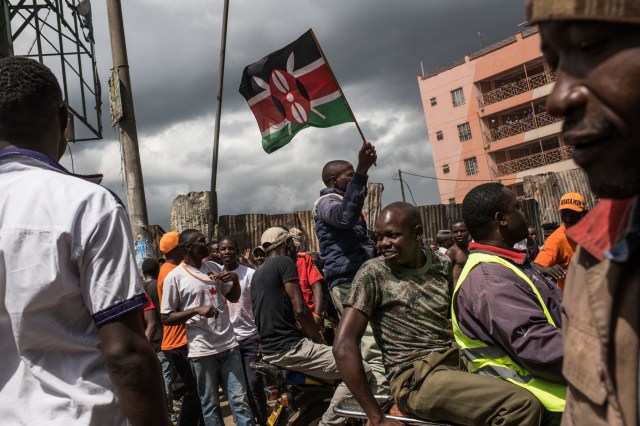Credit: Andrew Renneisen/Getty Images

What unites Nigeria, India, Bangladesh and the Democratic Republic of Congo? Beyond having, respectively, in absolute numbers the world’s biggest populations of absolutely poor people, they all have elections over the coming year.
Democracy in the developing world is not like democracy at home. It is fought dirtily (even by comparison to the Brexit referendum or the 2016 presidential election). Voters often come in blocs, often organised on linguistic, religious or ethnic grounds. Money and violence are used liberally. Votes are bought and sold and stolen. But these elections are nonetheless real political struggles. They not only matter for the quarter of the world’s population, they are also an indicator of what democracy really means in weak states. Here are a few of the best books I read this year to understand them.
How to rig an election, by Nic Cheeseman and Brian Klaas
Nic Cheeseman, co-author of this brilliant book, was one of my regular sources when I covered African politics, in particular during the disputed Kenyan election of 2017. After years of studying politics in Africa’s Anglophone democracies, he knows what he is talking about. The pair explain how although more and more countries are holding elections, not many of them are truly credible.
Election rigging these days rarely involves stuffing ballot boxes and presidents winning improbable 99% victories (though those still happen). Instead, it involves careful manipulation of the voter registration process; the use of illicit money stolen from government coffers to bribe power brokers; intimidation and even the use of disappearing ink in Ukraine’s 2012 elections. Foreign observer missions, they persuasively argue, rarely spot such trickery or prove it. And even when they do, Western governments often endorse the results anyway.
When Crime Pays, by Milan Vaishnav
This was one of the first books I started reading on arriving in India in August – and it is extraordinary. After the last elections in 2014, 34% of MPs in India’s national parliament were facing criminal charges. What Mr Vaishnav explains, with plenty of colour, is why this is. And in the world’s largest democracy, he makes a persuasive case that being a criminal is actually an asset – indeed voters prefer them.
In his account, as India’s democracy became more competitive, and the firm grip of the Congress Party loosened, the need to use violence and bribery to bring out your voters and intimidate your opponents grew. At first, politicians outsourced the violence and money-making to goondas, but pretty quickly the men with guns realised that they could cut out the middlemen and run for office themselves. It is a depressing lesson in how even in relatively free democracies, voting does not necessarily lead to the best people winning, and how in weak states, corruption is not a parasite on the system – it is the system.
How democracies die, Steven Levitsky and Daniel Ziblatt
This book is my third pick of the year. It sold brilliantly, probably because it is far from subtle in drawing parallels from developing countries’ democracies to the United States. But it is not necessarily wrong. Its chief argument is that democracy dies not because voters pick demagogues, but because elite power brokers allow demagogues to get onto the ballot.
Democracy is not ensured by well-designed institutions, they say, it relies on social trust and an establishment which obeys unwritten rules. The book relies a little too much on overly famous examples for my liking – I found the rehashing of the rise of Hitler a little tedious. But it did make me aware of Alberto Fujimori, the president of Peru from 1990 to 2000, who launched a military coup in 1992. He also divorced his wife and publicly stripped her of the title of First Lady, giving it to his daughter instead. The lesson, that populism can be, well, popular, is effective.










Join the discussion
Join like minded readers that support our journalism by becoming a paid subscriber
To join the discussion in the comments, become a paid subscriber.
Join like minded readers that support our journalism, read unlimited articles and enjoy other subscriber-only benefits.
Subscribe